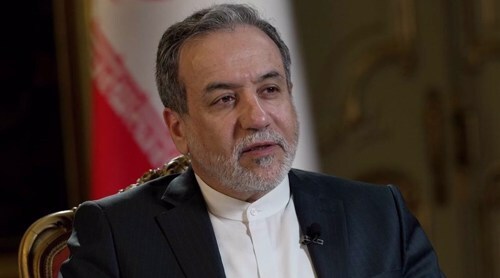
Foreign Minister Abbas Araghchi concluded a packed week in the US, holding over 31 bilateral meetings, attending high-level multilateral forums, and firmly defending Iran’s rights against Western pressure.
The top Iranian diplomat, in his assessment of his recent mission to New York, described the trip as a “fully intensive” week marked by diverse diplomatic engagements.
The minister highlighted that while part of the agenda focused on the illegal attempts to activate the snapback mechanism, Tehran also used the occasion to expand bilateral relations, strengthen multilateral cooperation, and advance Iran’s positions on key international issues.
“I met bilaterally with the foreign ministers of over 31 countries. Alongside discussions on the nuclear issue, we exchanged views on bilateral relations, reviewed cooperation prospects, and reached understandings on economic partnerships and joint commissions,” Araghchi said.
He underlined Iran’s active presence in major international meetings, including a global development summit convened by China, and a session commemorating the 1500th anniversary of the birth of Prophet Muhammed (PBUH), initiated by Iran at the Organization of Islamic Cooperation.
Araghchi also joined a quadrilateral summit on Afghanistan with Russia, China, and Pakistan, underscoring Tehran’s constructive regional role beyond the UN framework.
The foreign minister recalled his meeting with UN Secretary-General António Guterres, during which Iran reiterated its positions on the unlawful snapback push. “What we faced was a clear attempt to pull unreasonable concessions from Iran. In contrast, we tabled fully rational proposals that even European counterparts admitted were logical,” he said.
He went on to say that despite intensive talks with the European trio, the UN Secretary-General, and the IAEA Director General, no compromise could be reached due to the excessive demands of the US and the alignment of the Europeans.
According to Araghchi, Iran's position is clear: no agreement that undermines the rights and interests of the Iranian people will ever be acceptable.
The overall activities showed that the foreign policy of the Islamic Republic of Iran, until the very last moment, takes every necessary measure to safeguard Iran’s interests, Araghchi underlined.
"Messages were exchanged with the Americans both directly and indirectly. In the end, we are assured that everything that needed to be done was done, and it became clear and proven—once again—that the interpretation expressed by the Leader, that negotiations with the Americans are an absolute deadlock, was indeed demonstrated in this process."
"They imagined that the “monster” they created out of the snapback mechanism would frighten us to the extent that we would be willing to give away any concession. This is absolutely not true."
"Today, I spoke with the UN Secretary-General regarding the measures that the UN Secretariat must undertake—and some of which have already been initiated. From now on, we face a legal challenge in the Security Council and the United Nations. Russia and China share our stance that the measures taken are unlawful, lack any legal foundation, and should not be given recognition."
"We are now confronted with a new situation in the Security Council, the United Nations, and the International Atomic Energy Agency. From our perspective, there was no consensus in the Security Council to adopt the snapback decision. Russia and China also believe such a consensus did not exist."
"These matters must now be discussed and reviewed within the Supreme National Security Council and its nuclear committee, and based on the overall circumstances, we will implement whatever serves the country’s interests. I am confident that well-considered and precise decisions will be made by the Supreme National Security Council.", Mehr reported.
The United States and three European states attempted to misuse the JCPOA’s snapback mechanism to revive terminated UN sanctions against Iran. Iranian officials have repeatedly stressed that Tehran has fully complied with its commitments and that it is Washington and its allies who have violated international law and diplomacy. The foreign minister’s diplomatic week in New York showcased Iran’s strategy of both resisting unlawful pressure and expanding constructive international engagement.